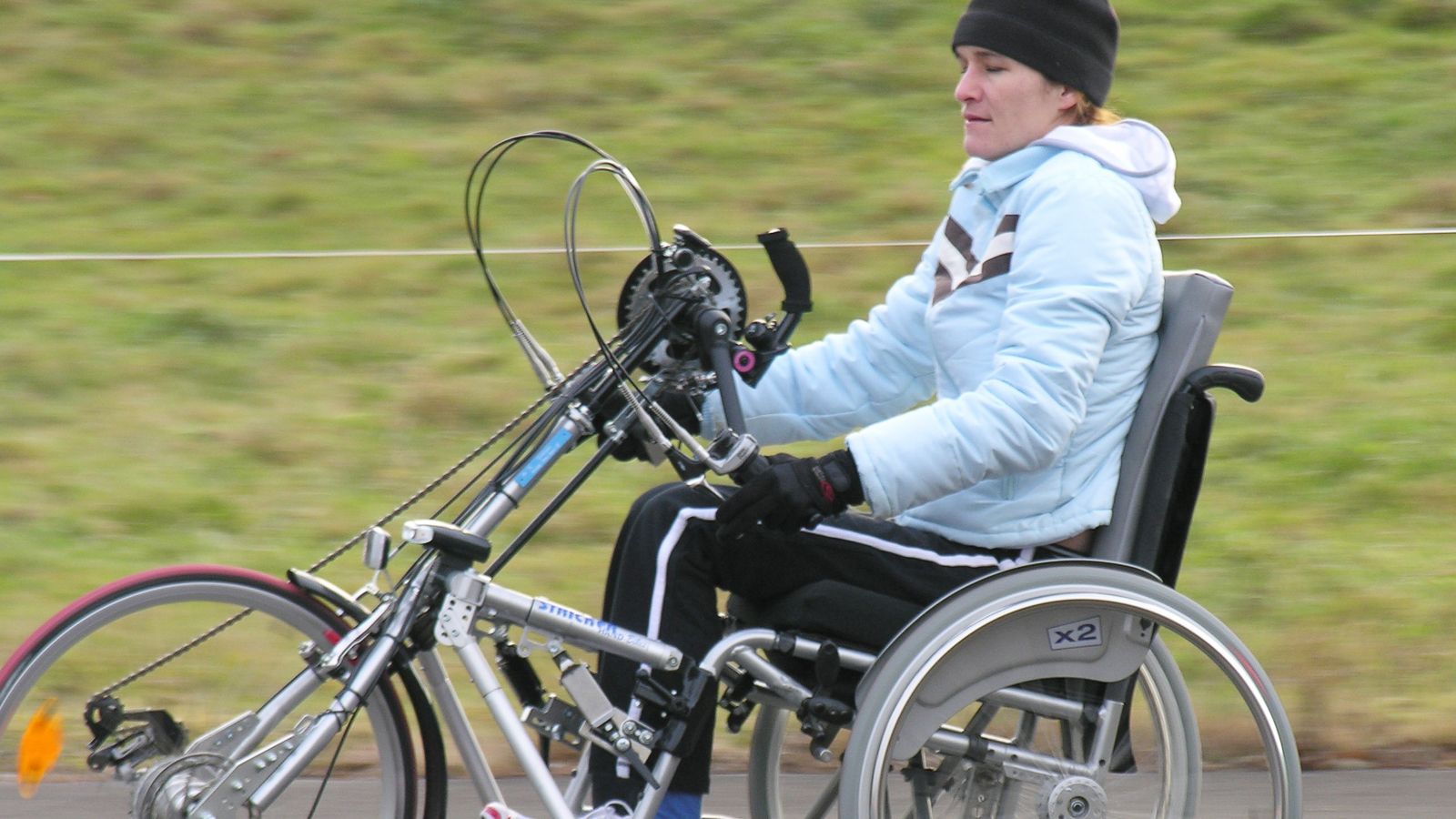Discussion

Beyond enhancing physical fitness and functioning, sports can benefit psychological and emotional functioning, promote the recovery of daily life activities and community reintegration, as well as reduce SCI-associated morbidities.2357911 Thus, sports can be seen as a significant contributor to the overall health maintenance and health promotion of persons with SCI.
""...interventions had an introspective and calming effect, helping her to adapt to her new life situation and even alleviate some fear of falling.""
Going back to as early as 1948, sports have been a component of rehabilitation for persons with SCI. It began with Sir (Dr.) Ludwig Guttmann, who utilised sports in the rehabilitation of persons who sustained a SCI during World War II. Dr. Guttmann's efforts ultimately led to the first Wheelchair Olympics held in 1960.11 The outstanding athletes of the subsequent Paralympic Games demonstrate the “immeasurable potential that is possible when their determination is met with social and technological efforts to promote access".11
While these athletes may not be representative of the general population of persons with SCI, participation in sports has many positive outcomes beyond just the physical and psychological. Sport activities can enhance the value a person places on teamwork, active participation and just enjoying life11 – elements important for successful community reintegration.
A sports (or physical) therapist can help to integrate sports-related interventions into the rehabilitation process that are tailored to a particular person's situation. A person’s age, physical fitness before and after the injury, emotional state, personal interests, as well as the type of injury (tetraplegia vs. paraplegia, complete vs. incomplete), and the resources available are all factors that are relevant for selecting the appropriate type and level of sports intervention.
In Lisa’s case, she was an extremely athletic young woman who experienced a climbing accident that resulted in paraplegia, multiple injuries and related psychological problems. The initial rehabilitative interventions aimed at the recovery from injuries, the alleviation of fear of falling and improvement in mobility (including wheelchair use). These early interventions were prerequisites for participating in sports that were planned into Lisa's subsequent Rehab-Cycle®. Together with her sports therapist, several types of sports were explored and the optimal interventions were selected. Given Lisa's fitness level and pre-injury experience as an athlete, she was offered a wide range of sports to explore.
Sports had additional social benefits, such as strengthening existing friendships and providing an opportunity to develop new ones. Competitive sports allowed her to meet others in similar circumstances with similar interests. However, Lisa was not limited to doing sports with other persons with SCI. She also played tennis, handbiked and canoed with non-injured people, most notably with her boyfriend. Lisa's case shows that sports can facilitate the integration into the community.
Lisa's case also illustrates that goals that are set can be mutually reinforcing. For example, fitness training improved her mobility, that in turn increased her participation in recreation and leisure activities i.e. sports. Increased physical fitness and improved mobility also helped Lisa to reach her cycle goal of ‘independence in self-care’. Non-sports related interventions, Feldenkrais therapy in particular, also significantly contributed to decreasing Lisa’s fear of falling and increasing her body awareness.
Overall, a comprehensive rehabilitation approach that includes sports in combination with other fitness, mobility and non-sports related interventions greatly facilitated Lisa’s progress in physical and psychosocial functioning, and paved the way for successful community reintegration. Lisa’s case offers a great example of how sports can be integrated into rehabilitation.
""Lisa's case offers a great example of how sports can be integrated into rehabilitation.""
In summary, persons with SCI can profit greatly from a comprehensive rehabilitation process that also integrates a range of sports and physical interventions and takes the person's specific needs and abilities into consideration.